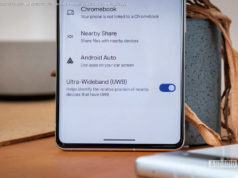iOS 18 is Apple’s upcoming operating system for its iPhone models. It is expected to be announced during the WWDC 2024 keynote,
iOS 18 is Apple‘s upcoming operating system for its iPhone models, including the rumored iPhone 16. Expected to be announced during the WWDC 2024 keynote, there are high hopes that Apple will focus on AI applications, as it needs to catch up with Google, OpenAI, Microsoft, and other players. Here’s everything you need to know about this operating system.When will Apple announce iOS 18?
If Apple follows the trend, Apple should announce iOS 18 during the WWDC 2024 keynote. The Worldwide Developers Conference will take place on June 10. While it was previously held at the San Jose McEnery Convention Center in San Jose, California, ever since the pandemic started, Apple began pre-recording the WWDC keynote and then made a hybrid approach by inviting developers and media personalities to watch the presentation from the Apple Park, in Cupertino.
The company is likely to announce the WWDC 2024 dates in April.
Here’s everything Apple announced during the WWDC 2023 keynote Rumored iOS 18 features
While we still have some months before the WWDC 2024 keynote, and it’s harder to predict software changes as Apple has more control over this information, we don’t know much about iOS 18 top features. Still, Bloomberg‘s Mark Gurman expects this update to be fairly packed. Internally, Apple’s senior management has described this upcoming operating system as “ambitious and compelling.” AI is key to iOS 18
According to Haitong International Securities analyst Jeff Pu, iOS 18 could finally add generative AI features for the iPhone in late 2024. He suggested Apple is building a few hundred AI servers in 2023 and even more in 2024. TrendForce also hints at Apple buying AI servers, as AI server firm Supermicro wants to “aggressively expand its efforts to secure AI orders from clients, including Apple and Meta.”
By combining cloud-based AI and on-device data processing, Apple would finally roll out its generative AI to iPhone and iPad users by late 2024, which means this would be part of the iOS 18 cycle.
A few other reports also talk about Apple’s future GPT. The Information shared that Cupertino is spending millions of dollars daily to train its large-language models – LLM for short.
While the publication said most of this investment would focus on AppleCare customers, the Siri team plans to incorporate these language models to make complex shortcut integrations much more accessible.
What’s interesting about this story is that people on the Apple team believe its most advanced language model, Ajax GPT, which Bloomberg already reported, might be better than OpenAI’s GPT. 3.5. Even though the other company is already working on better solutions, it’s good to know that Apple has dramatically improved in the conversational AI field.
In total, Apple is testing four AI models, according to iOS 17.4 code. Two of them are AjaxGPT, while also using ChatGPT and Google’s FLAN-T5.
Ultimately, Apple aims to improve and integrate its LLMs into iOS, so it compares its test results with ChatGPT with FLAN-T5 with both on-device and online processing.
Bloomberg‘s Mark Gurman also corroborates with Jeff Pu and The Information, as he also believes generative AI will be a massive part of iOS 18 and the iPhone 16. These are some use cases for Apple’s AI:
Auto-summarizing and auto-complete features for core apps and productivity software (Pages, Keynote). This was also rumored by leaker yeux1122, which says code on iOS 18 suggests this function.
Better playlist creation in Apple Music
Siri (a big overall overhaul with a focus on AI)
Code completion in a new version of Xcode for developers
AppleCare tools to assist employees in helping customers with troubleshooting
Recently, Gurman said that Apple plans for the initial wave of AI features to work entirely on devices. “That means there’s no cloud processing component to the company’s large language model, the software that powers the new capabilities.” Since Apple bought a French startup specialized in algorithm compression and embedded artificial intelligence, this report makes even more sense.
That said, Apple’s AI features will likely be faster and private as they’ll run on the device. However, they might not be as smart as the ones available with competitors. Still, Gurman believes Google Gemini, or a different large language model, will eventually power cloud-based AI features in iOS 18.
During Apple’s first earnings call of the year, the company’s CEO, Tim Cook, did not mention iOS 18 by name. But he did address AI twice, teasing the upcoming announcements. He did it once during his remarks, right after reminding those on the call about the Vision Pro launch.
Cook said Apple will spend a “tremendous amount of time and effort” on AI, with details coming later this year.
Moments like these [the Vision Pro launch] are what we live for at Apple. They’re why we do what we do. They’re why we’re so unflinchingly dedicated to groundbreaking innovation and why we’re so focused on pushing technology to its limits as we work to enrich the lives of our users.
As we look ahead, we will continue to invest in these and other technologies that will shape the future. That includes artificial intelligence, where we continue to spend a tremendous amount of time and effort, and we’re excited to share the details of our ongoing work in that space later this year.
Still, Tim Cook’s words weren’t enough to convince Haitong Securities analyst Jeff Pu. According to him, AAPL share is overvalued as he believes investors should be cautious about the iPhone 15 cycle, AirPods, Mac, and Apple Watch, in addition to the “potentially muted iPhone 16.”
Even though generative AI will start to take shape later this year with the iPhone, he expects it to be limited with some AI-related hardware upgrades for the iPhone 16 with the A18 and A18 Pro chips.






